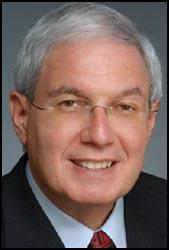Ronald Kessler

Ronald Kessler started his career in journalism in 1964. After working for the Worcester Telegram he moved to the Boston Herald in 1967. The following year he moved to the Wall Street Journal. In 1970 Kessler became an investigative reporter with the Washington Post.
Books by Kessler include The Life Insurance Game (1985), The Richest Man in the World: The Story of Adnan Khashoggi (1987), Spy v Spy: Stalking Soviet Spies in America (1988), Moscow Station (1990), The Spy in the Russian Club (1992) and Escape from the CIA (1993). Kessler's next book, Inside the CIA (1994), was written with CIA cooperation. This was followed by The FBI: Inside the World's Most Powerful Law Enforcement Agency (1995). It is claimed that the book led to the resignation of William Sessions.
Other books by Kessler include Inside the White House (1996) and The Sins of the Father (1997) a book about Joseph P. Kennedy and his children. In recent years he has published Inside Congress (1998), The Bureau: The Secret History of the FBI (2003), The CIA at War (2004), A Matter of Character (2005) and Laura Bush (2006).
After leaving the Washington Post, Kessler became correspondent of NewsMax. Ronald Kessler has won sixteen journalism awards including two George Polk awards.
Primary Sources
(1) Ronald Kessler, The Bureau: The Secret History of the FBI (2003)
When Oswald moved to Dallas, his file was assigned to James P. Hosty Jr. On November 1, 1963, Hosty visited Ruth Payne in Irving, Texas, where Oswald lived. She informed him that Oswald was working at the Texas School Book Depository in Dallas and was staying temporarily in a rooming house there. Hosty briefly met Marina Oswald, his Russian-born wife, who appeared frightened. Hosty assured her the FBI would not harm her.
Payne promised to find Oswald's address in Dallas, and Hosty dropped in on her a second time, but she still did not know where Oswald was. Shortly after that visit-sometime between November 6 and 8 - Oswald appeared at the Dallas Field Office and demanded to see Hosty. When told by Nanny Lee Fenner, a receptionist, that he wasn't in, Oswald threw down an envelope, and Fenner read the note inside. She later recalled that it said if the FBI didn't stop bothering him, Oswald would "blow up" the FBI field office or the Dallas police department.
Fenner had worked for the FBI since 1942. People had come in with knives and pistols, and that hadn't bothered her. But she considered Oswald's note a serious threat and brought it to the attention of the assistant special agent in charge. He said to give the note to Hosty, who read the note and tossed it in his in box.
"The note merely threatened unspecified action against the FBI," Hosty told me. "Why would Oswald threaten to blow up the police department?"
(2) Ronald Kessler, The Bureau: The Secret History of the FBI (2003)
The next morning, Colonel Alexander M. Haig Jr., another Kissinger aide, met with Sullivan in his office and asked for wiretaps of four people, three on the National Security Council staff and one in the Defense Department. One of the targets was Halperin, who was already being wiretapped. Sullivan relayed the request to Hoover, who told him to follow Haig's instructions but "make sure everything is on paper." Hoover instructed Sullivan to obtain John Mitchell's approval.
Jones did not trust Sullivan. A feisty man who read voraciously and wore rumpled clothes, Sullivan was born in Bolton, Massachusetts, where his parents were farmers. After receiving a bachelor's degree in history from American University, he taught English in Bolton. Sullivan became an agent in 1941.
Sullivan's colleagues called him "Crazy Bill" because he was so unpredictable. Jones recalled that during the riots in Washington in April 1968 following the assassination of Martin Luther King, Sullivan called him and said he wanted to take a look. With Jones driving, they stopped at a red light.
"People were standing on the corner," Jones said. "He reached into his pocket and pulled out Mace. He sprayed it at one younger person who probably was involved. I don't know if it hit him."

